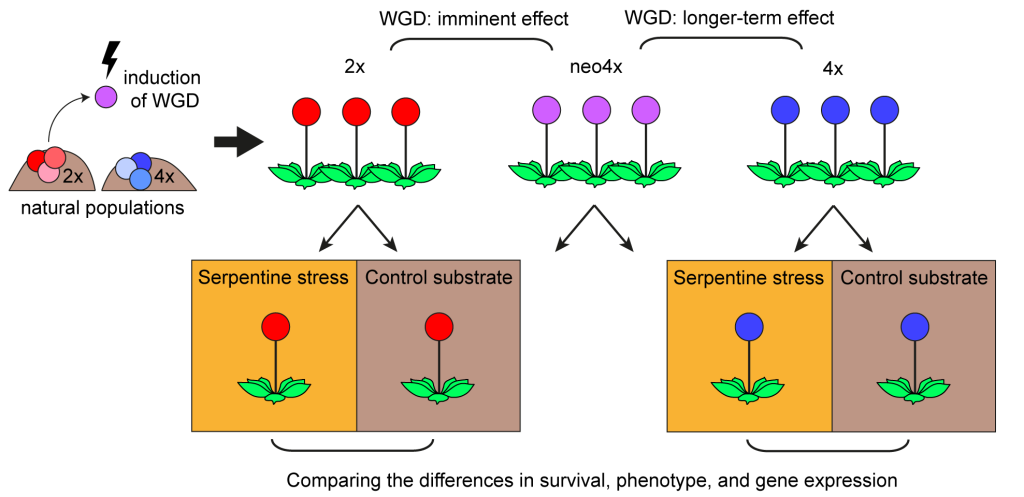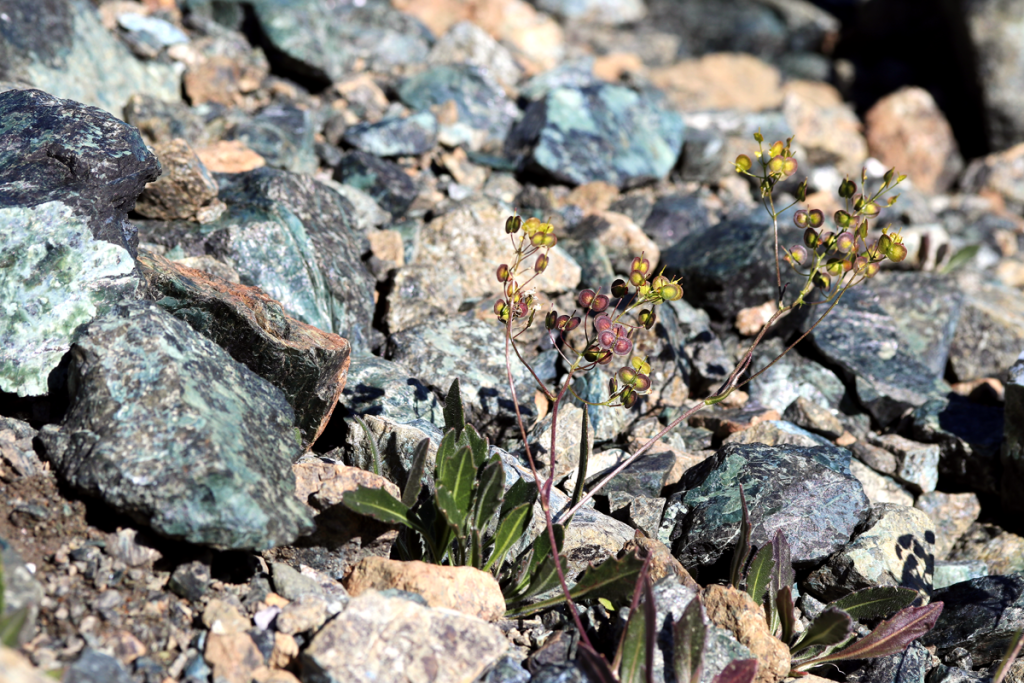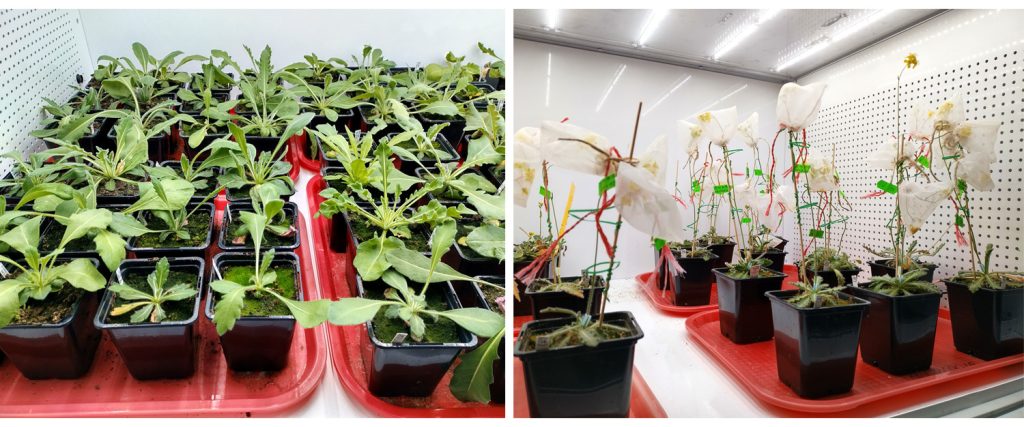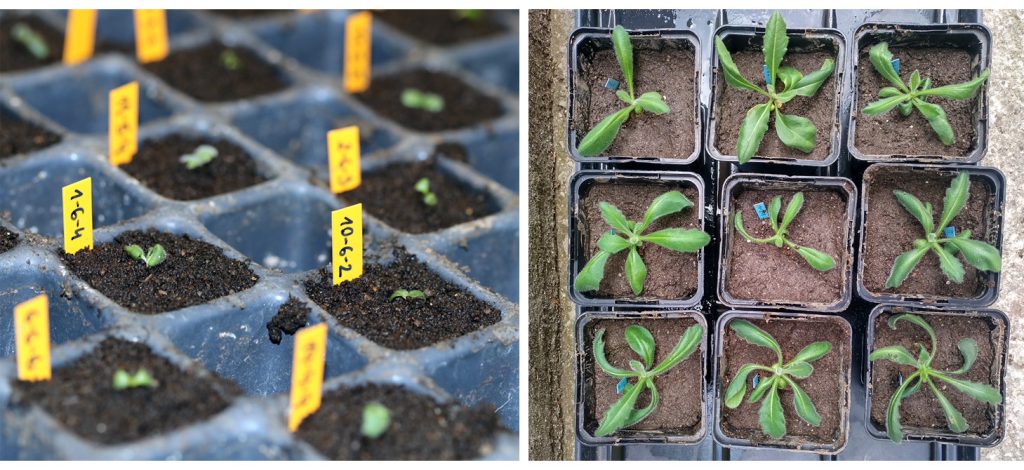Benefits of genome doubling for adaptive evolution under environmental challenge
Whole genome doubling (WGD, or polyploidisation) is a widespread and re-occurring major-effect mutation that had played an important role in the evolutionary history of many eukaryotic lineages. While it is widely acknowledged that WGD often brings genotypic and phenotypic novelty, whether this has beneficial, neutral, or detrimental effect remains unclear. In plants, where the phenomenon of WGD was discovered and have received the most attention, the evidence for its adaptive value is rather contradictory. Possibly, the adaptive value of WGD could strongly depend on environmental context, as suggested by the higher association of WGD events with environmental turmoil.
In this fellowship project, that is being developed during my 2021-22 postdoc stay in Prof. Christian Parisod’s lab at the University of Fribourg (Switzerland), we attempt to shed light on the adaptive potential of WGD in plant populations facing environmental stress. We employ ex-situ experiments involving synthetic polyploid mutants and environmental stress and combine them with genomic screening of adaptation in natural diploid and polyploid populations. Inhospitable serpentine substrate was selected as a particularly suitable environmental stress factor, that can also be easily manipulated in experiments. Serpentine soils are known to impose strong challenges to plant life (e.g., low nutrient content, strong excess of magnesium, toxic heavy metals, drought) and often leave distinct traces of selection in plant genomes.

As a model plant, we are using the Buckler mustard (Biscutella laevigata). This species exhibits natural ploidy-level variation (diploid and autotetraploid populations) with both serpentine-adapted and naive populations occurring within each cytotype. To achieve our goals, we are taking advantage of preliminary genomic resources developed for the species in the Parisod’s lab.



Data collected during the project are currently being processed and analysed.
The fellowship project was financed by the Ministry of Education, Youth and Sports of the Czech Republic (project no. CZ.02.2.69/0.0/0.0/20_079/0018001) and co-funded by the European Union.
